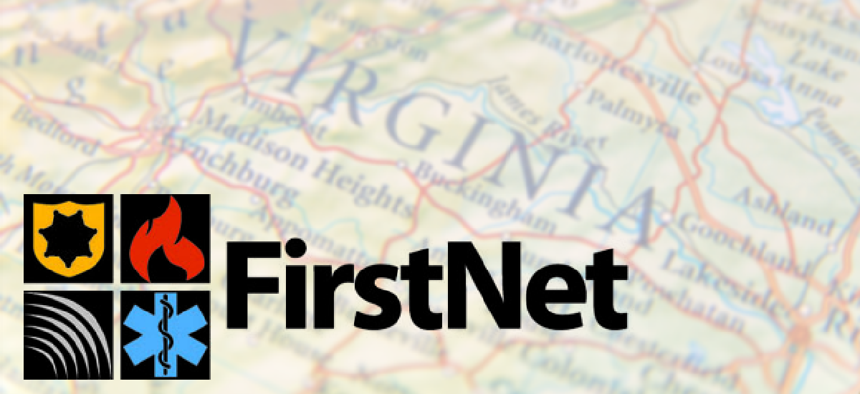Virginia signs on to FirstNet


Connecting state and local government leaders
As the first state to join the network, Virginia’s decision comes less than a month after AT&T released the state plans.
Virginia is the first state to opt in for FirstNet, the nationwide wireless broadband public safety network.
On July 11, Virginia Gov. Terry McAuliffe signed the official agreement while first responders and government officials who worked on the years-long effort stood behind him.
“I am proud that Virginia is the first state in the United States of America to opt-in and declare that we are part of FirstNet,” McAuliffe told the audience before the official signing. “You cannot ask men and women to put on that uniform, ask them to put their lives on the line and not give them the tools to keep them safe.”
FirstNet and AT&T will build, operate and maintain a secure wireless broadband communications network for the public safety community and create an entire system of modernized devices, apps and tools for first responders.
The announcement is the result of three years of meetings and negotiations with FirstNet, McAuliffe said. FirstNet officials have met with Virginia officials and the state’s public safety community “more than 90 times” since 2013 to address state-specific concerns like maritime coverage and connection for the state’s rural localities.
Virginia’s decision comes less than a month after AT&T released the customized state plans; states can provide feedback on these plans until Aug. 4. Starting in mid-September, state governors will have 90 days to decide whether to opt in or opt out.
States that decide to opt out have 180 days to develop and complete a request for proposals for their statewide network. The FirstNet legislation, which allows states to opt out and build or buy their own solution, specifies that their networks must still be interoperable with the nationwide network.
While Virginia is the first state to opt in, eight other states have released RFPs seeking alternatives, Rivada Network's Brian Carney told GCN's sibling site FCW in June. Rivada Networks is leading a group of telecom vendors offering an alternative radio access network solution.
John Donovan, chief strategy officer and group president of AT&T Technology and Operations, said he expects most states to join FirstNet.
"I think once the states have an opportunity to evaluate in totality what it means to be in and what would be necessary to be out, I think it's a very compelling proposition for the states to join, and we expected that most if not all will," Donovan said at a May 31 conference in New York City, according to FCW.
AT&T and FirstNet will build, operate and maintain the network for 25 years at no cost to Virginia and other states that decide to join. When AT&T won the contract earlier this year, the government committed $6.5 billion in initial funding; the telecom giant has said it will invest another $40 billion throughout the 25-year contract.
The network is the result of a 9/11 Commission recommendation to improve communication for emergency services. FirstNet will be built specifically for police, fire and emergency services, meaning they won’t have to compete with the public for use of the wireless spectrum.
Fairfax County (Va.) Fire Chief Richard Bowers spoke after McAuliffe and said he was one of the responders who experienced communication issues on 9/11.
“In the past, first responders were not able to communicate over the commercial wireless networks during significant incidents as the networks become congested and overwhelmed,” Bowers said.
Bowers, and other officials that spoke, see FirstNet as the solution to this problem.
“FirstNet,” he said, “will save lives of citizens and first responders.”




